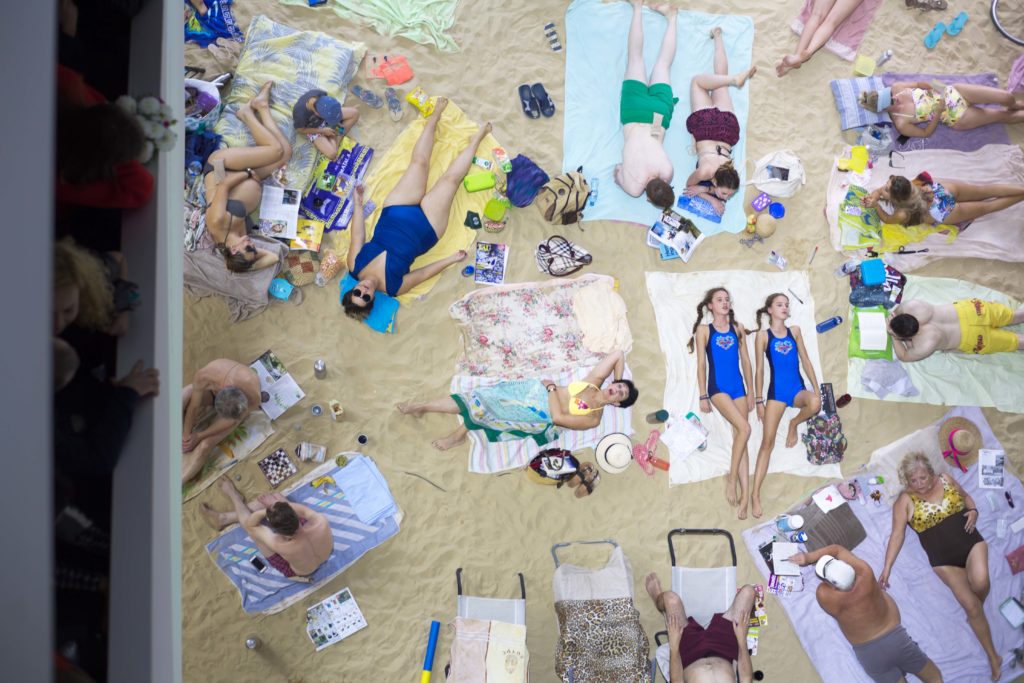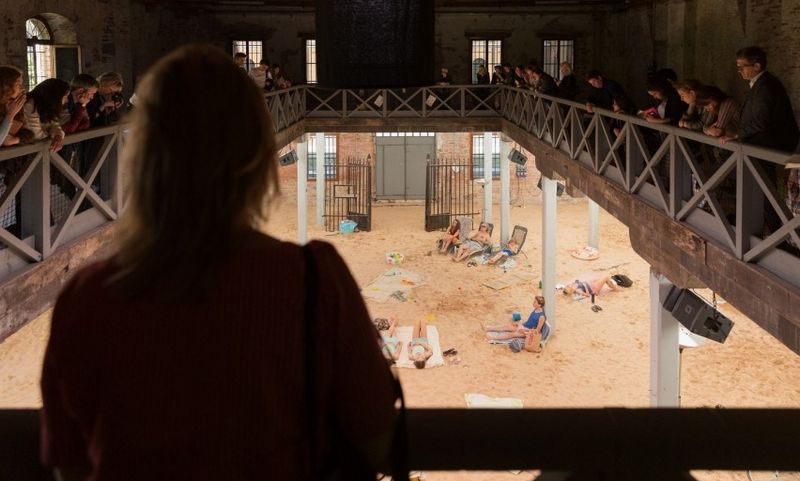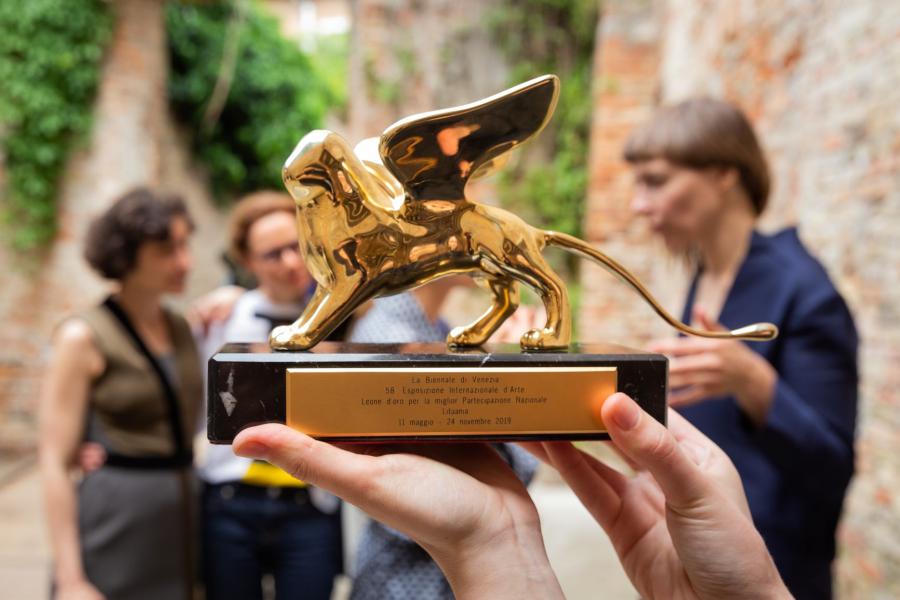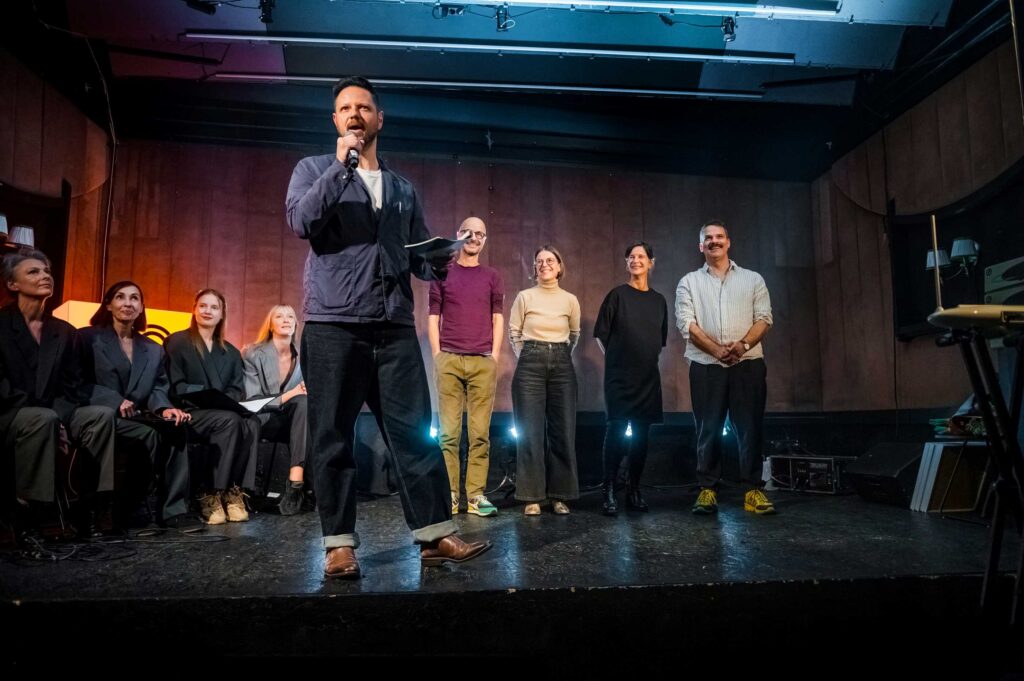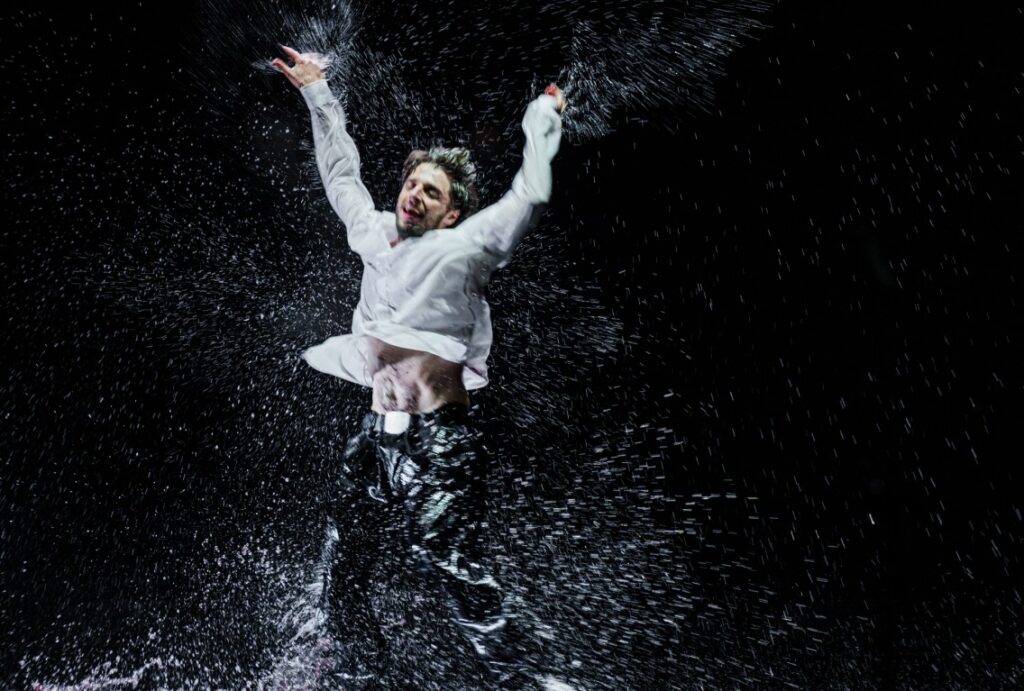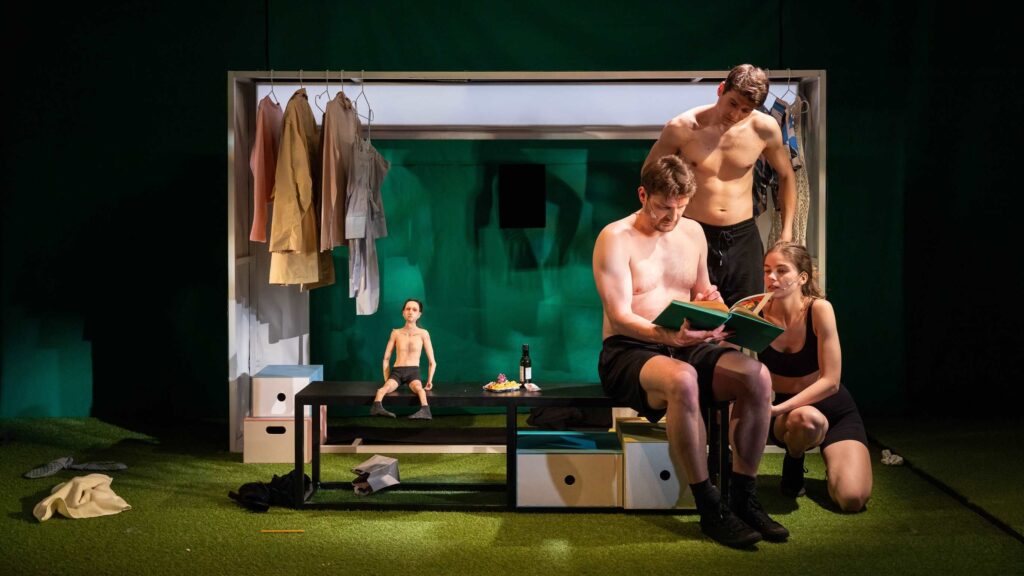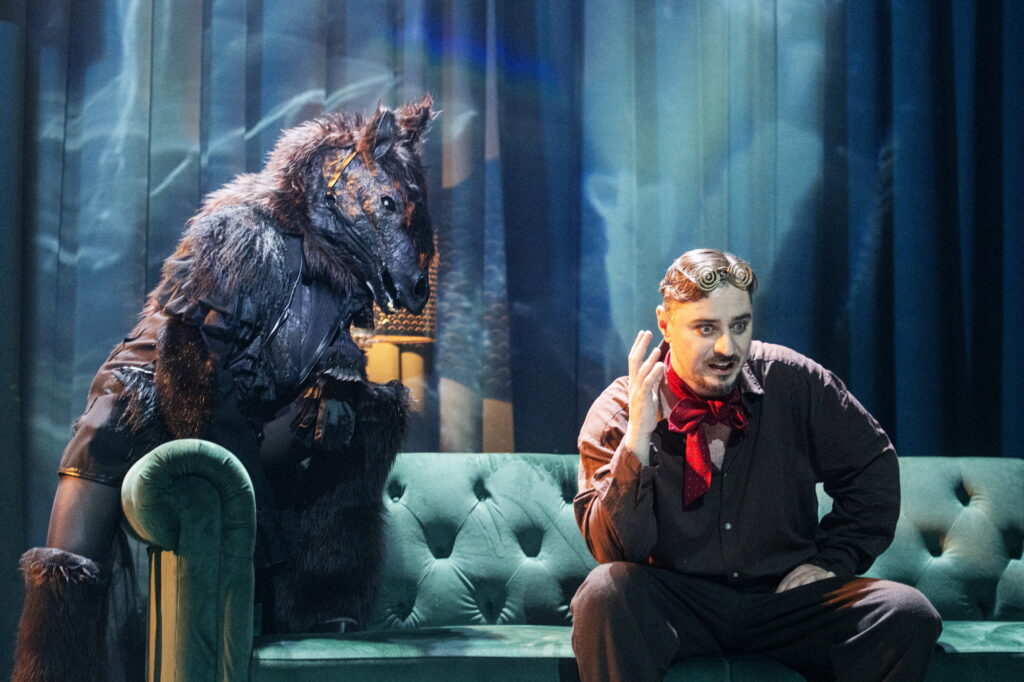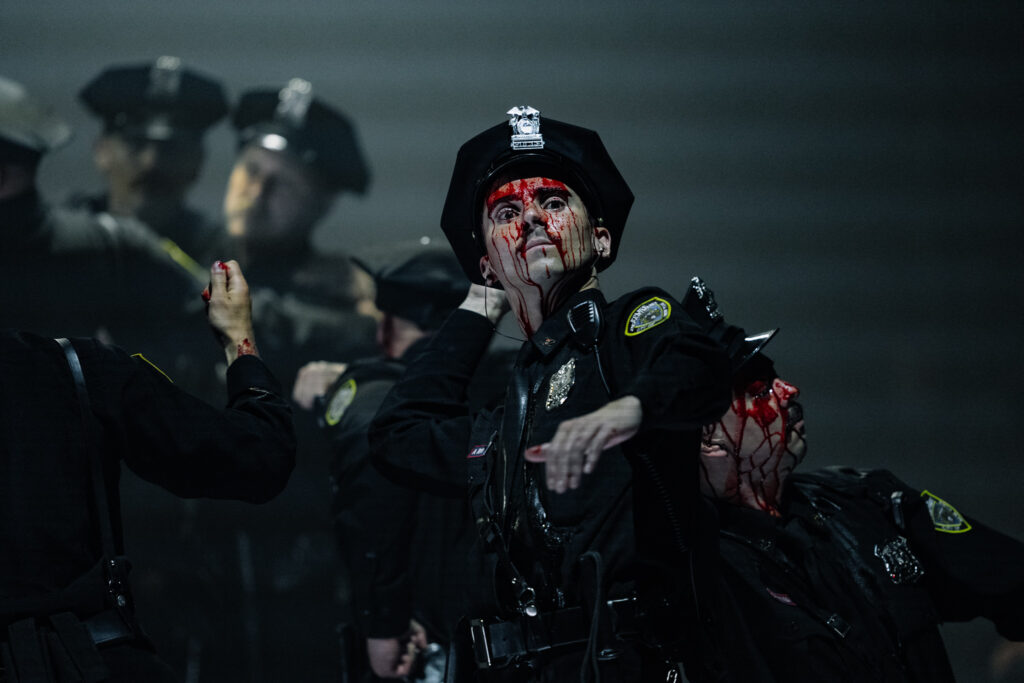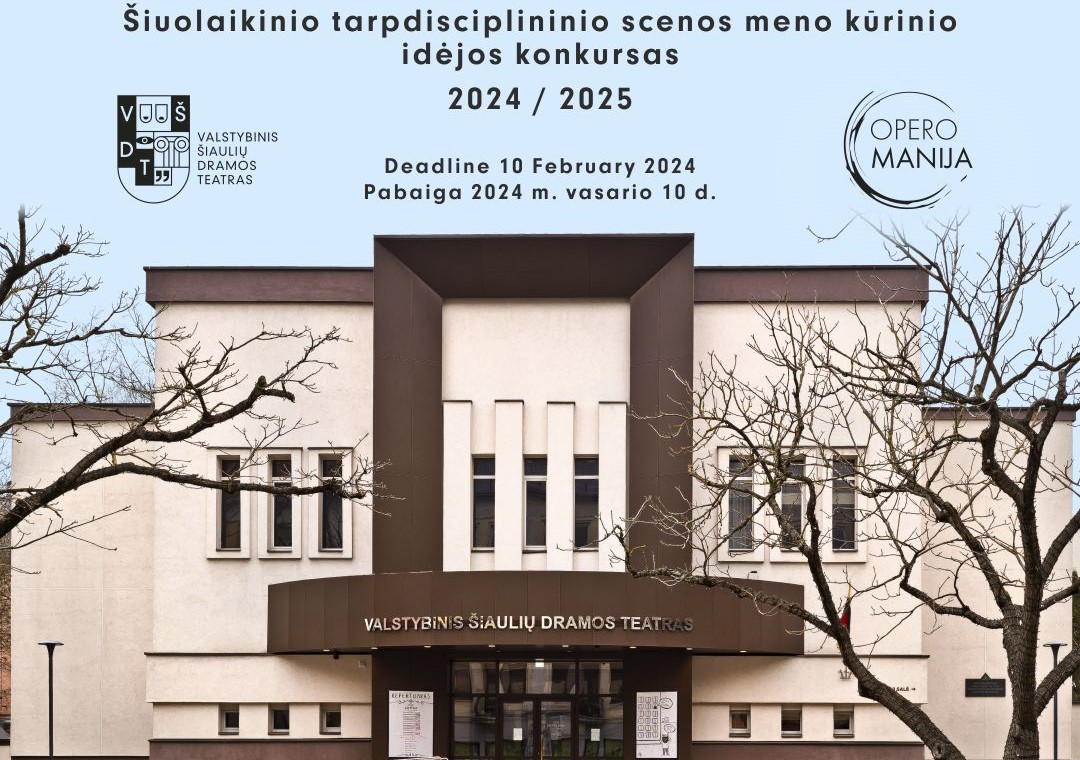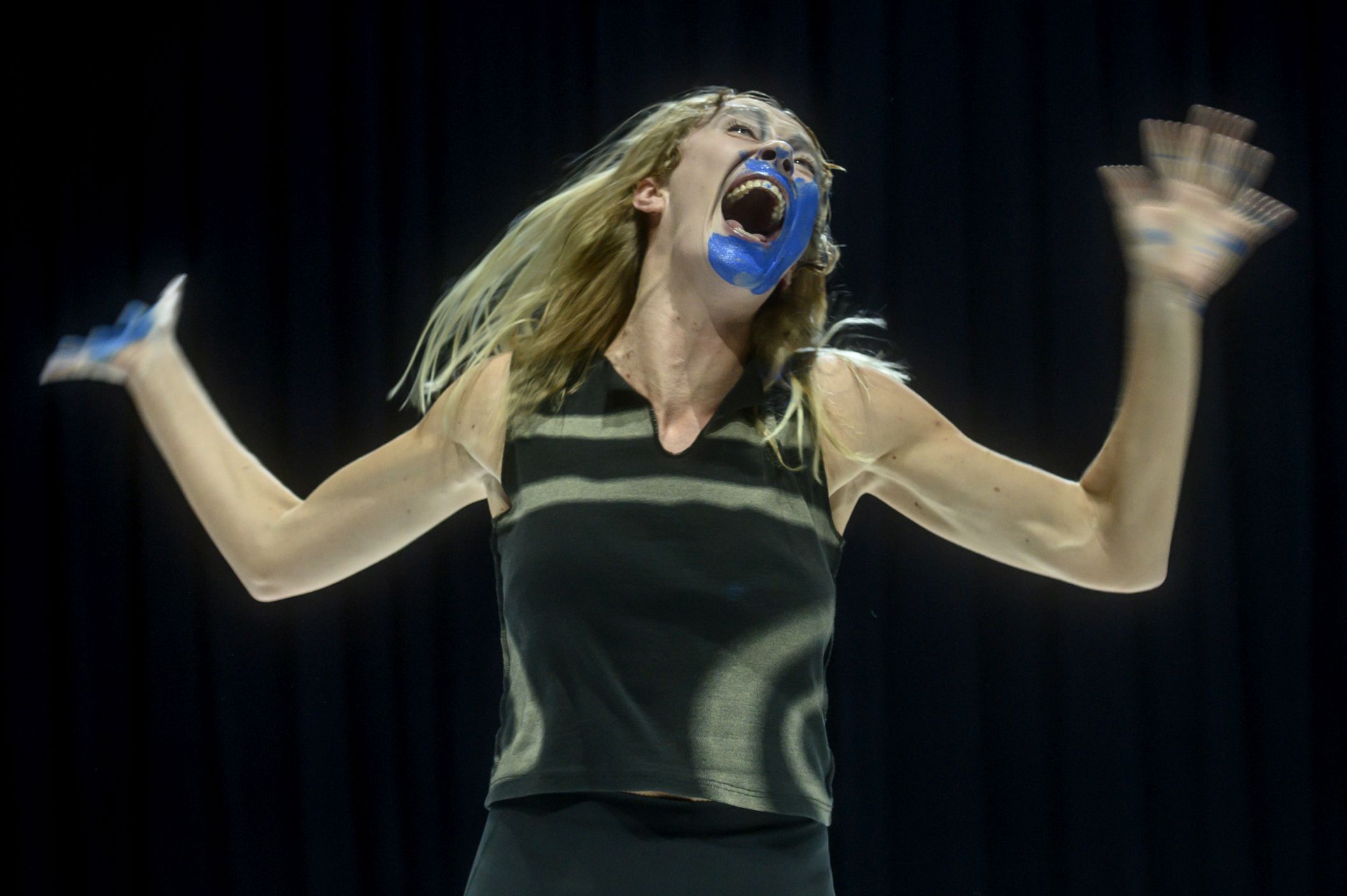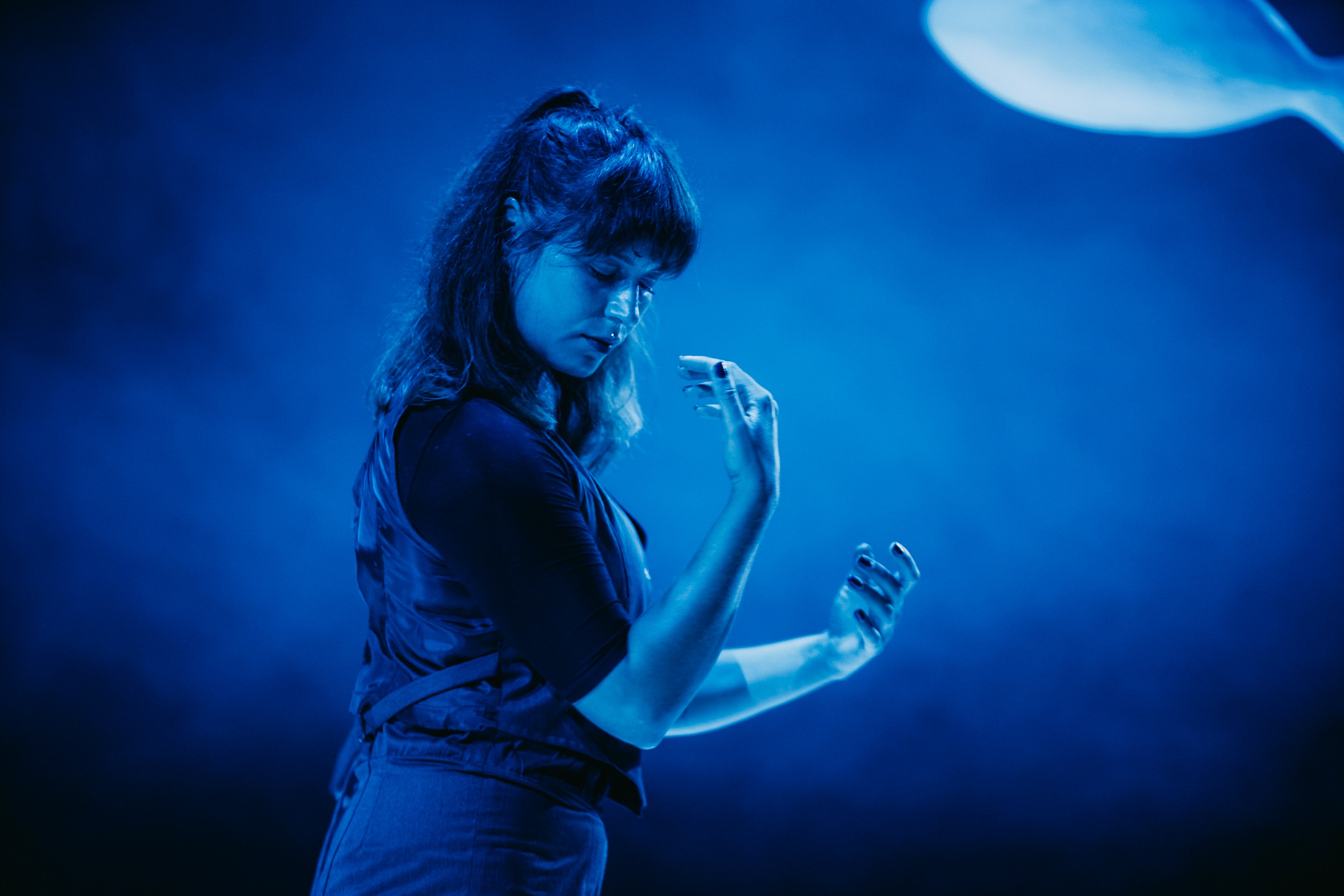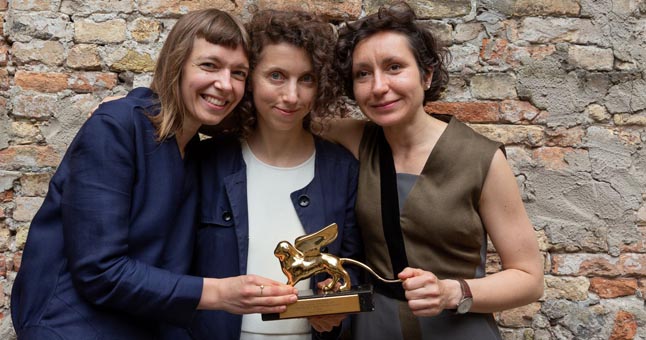
For the first time in history, the Golden Lion Award of the Venice Art Biennale is on its way to Lithuania. At the award ceremony on Saturday, Lithuanian representatives artists Rugilė Barzdžiukaitė, Vaiva Grainytė, Lina Lapelytė and their climate change opera-performance Sun & Sea (Marina) (Lith. Saulė ir jūra (Marina)) were cited as unsurpassed at this year's biennale.
Julia Halperin wrote in artnet.com: "So much art about climate change is bad. It's preachy, literal, unimaginative, and hung up on aerial shots of floods or topographical maps. By contrast, Lithuania's pavilion at the Venice Biennale, titled Sun & Sea (Marina), is a revelation. It is a chilling work about climate change that is also an opera about a day at the beach.
From a balcony on the second floor of a warehouse in Venice, viewers look down at a sandy tableau, where performers of all ages and sizes splay out on towels under beach umbrellas, scrolling through their iPhones and thumbing through magazines. The sounds of seagulls and ice cream trucks echo in the distance. One by one, the vacationers sing about a world very similar to our own, full of minor inconveniences. "
And Adrian Searle in theguardian.com wrote: "We look down from a minstrel's gallery on the holiday-makers below, kids building sandcastles, tourists sunning themselves on towels, oiling up and eating ices. An almost hour-long opera - the work of theatre director Rugilė Barzdžiukaitė, playwright Vaiva Grainytė, and composer Lina Lapelytė - this seductive performance is beautifully sung by the lounging tourists as we watch from our balcony, our ticket to the end of the world.
Threat slowly seeps in, like sun-tan oil. A lament to the eclipse of the world, as the sky and sea change colour, the reefs bleach and nature dies, this astonishing performance slides into almost unbearable pathos and pain. I can't stop thinking about this work, which rightly won Lithuania the Golden Lion for best pavilion. Flying in and out, and living the way we do, we are all implicated. Not interesting times, but the last days."
***
The work encouraging serious thought about climate change, the grimaces of the Anthropocene epoch as well as the exhaustion of the Earth stands out not only for its expression that is unusual in the context of the Biennale, but also for its unconventional directing solutions - the audience can observe the artificial beach and the holidaymakers singing about their experience from above.
This year, the Lithuanian pavilion was housed in one of the buildings of the naval territory. Thirty-five tons of sand and more than 20 performers both from Lithuania and Italy were required to turn this place into a singing beach.
The artists who were granted the Golden Lion Award told the website 15min.lt that the climate change performance Sun & Sea (Lith. Saulė ir jūra) presented in Venice - the city that can eventually disappear completely due to the rising water level - had acquired new shades of meaning.
Just before the opening of the Venice Art Biennale, the Lithuanian pavilion was discussed widely in the media; the first reviews were highly favourable. Did you feel that the award could be granted to you?
Lina Lapelytė: No, we definitely didn't. We were thinking about other things completely. We have loads of singers; we have to take care of such things as food, warmth and the living conditions of the performers. Hearing great reviews is great. After several of such positive reviews, we understood that our creation worked; everything was fine, but then we just switched to the work mode.
When we spoke half a year ago and you were preparing for the Biennale, you mentioned that one of the greatest challenges at that time was finding the right venue for your work. What challenges did you face after you discovered the right location?
Rugilė Barzdžiukaitė: When we arrived in that abandoned warehouse, it was very cold. We expected that it would be hot and that when we opened the gates into the canal, hot weather would enter the building and everybody would feel like on the beach; however, it was humid and freezing. We started considering the idea of changing the entire concept and creating the beach full of refugees huddled in sleeping bags. But when the military people saw us, they gave us a cable from the nearby warehouse and we solved the problem with a lot of heaters.
Lina Lapelytė: On the day the Lithuanian singers arrived, the weather was just horrible. There was an enormous storm, strong northern wind and planes tried landing for at least five times. I don't know what they might have thought about us, when they arrived in the pavilion. I guess they just decided they had been engaged in a completely crazy project (starts laughing).
Rugilė Barzdžiukaitė: But now it's really warm and we have to protect the singers from overheating.
Visitors with advance registration could bring their own bathing suits and towels and become a part of the opera. Were there a lot of such volunteers?
Rugilė Barzdžiukaitė: Lots of people are tempted by the idea of avoiding queues. If you come as a volunteer, you don't have to wait in line to see the opera. And the queues were really long. I guess this came as one of the greatest surprises to us. Before the Biennale, we had been told that nobody would find the pavilion and that it would remain empty. We even had a scenario as to how the singers could have some rest while there were no visitors in the pavilion.
Vaiva Grainytė: On the first preview day, when there were only around forty visitors and they came every hour, the performers danced zumba to keep warm. But now, with all this continuous flow of people, the performance is on for the entire nine hours, non-stop.
Sun & Sea (Marina) was presented in Vilnius, shown in Dresden and is now here, in Venice. How does this creation change with the change in its location, especially taking into consideration climate change issues?
Vaiva Grainytė: Here in Venice, this performance has definitely acquired additional connotations, especially bearing in mind that Venice is on the list of the cities that can eventually drown. This way, the apocalyptic scene becomes even more intense.
***
Sun & Sea is the second joint work of director Rugilė Barzdžiukaitė, composer Lina Lapelytė and librettist Vaiva Grainytė. In 2013, the opera Have a Good Day! (Lith. Geros dienos!) was granted the Golden Stage Cross, the national theatre award. The opera-performance Sun & Sea, which premiered in 2017, received another prestigious award - the Earring of Borisas Dauguvietis - for innovative and original ideas.
One of the most influential Italian art media channels Artribune offers multiple compliments both to the artists representing Lithuania and their work Sun & Sea (Marina). In his article, prominent Italian journalist and writer Gianluigi Ricuperati refers to the Venetian navy Marina Militare as a small treasure - the maze of narrow and winding streets of Venice can bring you to the port territory of emerald waters that is normally closed for civilians. Here, hardly audible and slightly hypnotic voices of the singers encourage visitors to enter the building. The article includes numerous reasons why this pavilion is, “a real surprise causing admiration and creating the impression of distance.”
Just as the title of the performance suggests, the atmosphere of the opera reminds Ricuperati of the summer by the sea. By observing the performance from above, spectators become witnesses of the life “from holidays to holidays.” The author loves everything, “the ingenious simplicity, the attention to fantastically liberated bodies and the strong sense of nostalgia.” The journalist claims that he felt like a spy watching every movement of every character in that carefree idyll - the performers don't see their audience; they are fully immersed into a separate world. “Such performances are diamonds, the most fragile form of art,” the author writes.

